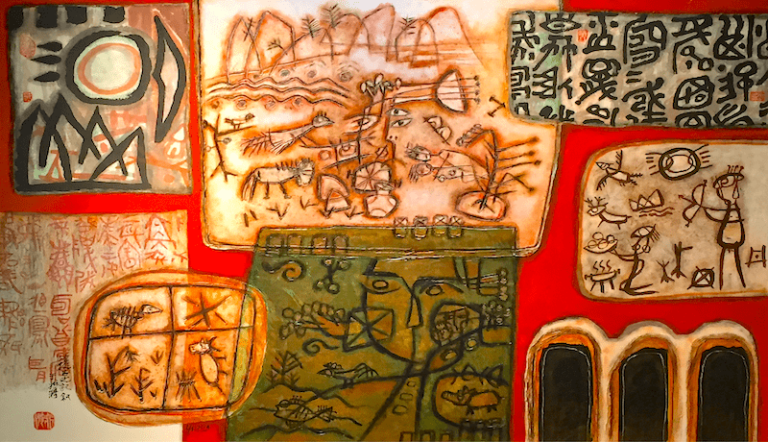
- Artist : Mr. Chau-yih Yu
On March 30 2012 the Ministry of Economic Affairs announced the third wave of sectors which are now open to investment by Chinese investors; applications from mainland Chinese investors have been accepted since that date.
Another company that has experienced a setback is Chinese telecommunications equipment manufacturer Huawei. Huawei has been seeking to set up a subsidiary to develop its business with telecommunications operators in Taiwan and supply major equipment and systems for Taiwan’s telecommunications infrastructure. However, Huawei has yet to obtain approval to do so from the Taiwanese government.
Having made tacit business arrangements in Taiwan for five years, Huawei first secured NT$1.059 billion’s worth of equipment procurement and maintenance projects for wireless network controllers and base stations from FarEasTone, before winning NT$20 billion’s worth of procurement projects for 3.5G networking and communications equipment from Asia Pacific Telecom. Almost all 3G mobile network cards in Taiwan incorporate Huawei’s products. Some of Chunghwa Telecom’s own branded handsets were produced by Huawei. Taiwan Mobile’s fixed-line ethernet network was also manufactured by Huawei. The range of products has even been expanded to 3.5G base station and core network equipment procurement projects. All of the telecommunications operators involved deny deployment of any core network equipment supplied by Huawei, despite the rapid growth of Huawei’s market share. This has been a sensitive issue at the communication security level and has attracted close attention from national security agencies and the National Communications Commission (for further details please see “NCC launches investigation into telecoms equipment made in China”).
The time division long-term evolution (TD-LTE) system developed by Huawei is the standard 4G communications technology in China and is aggressively promoted there. The Chinese government is striving to persuade Taiwan to include TD-LTE as the technical standard endorsed by the Taiwanese government. However, national security agencies have voiced concerns, which stand in marked contrast to the enthusiastic support of economic officials. The increase in Huawei’s supply of telecommunications and network systems and equipment to Taiwan could create national security loopholes, due to Taiwan’s inability to control communications security.
According to local news reports, Huawei has implied to its telecommunications customers in Taiwan that telecommunications operators and telecommunications equipment manufacturers from China may be allowed to invest in Taiwanese operators
in the fourth quarter of 2012.
The materials contained on this website are for general information purposes only and are subject to the disclaimer.

